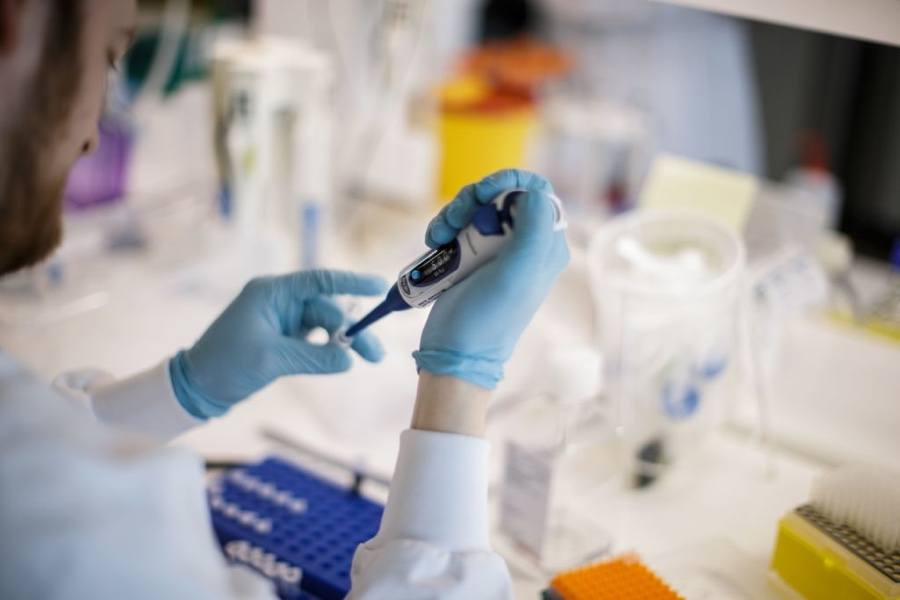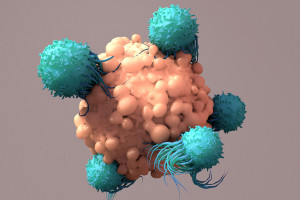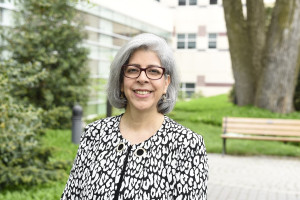These Philly Coronavirus Medical Milestones Prove Hope Is Not Lost
From repurposed drugs to blood plasma infusions, these developments could save the world's most at-risk COVID-19 patients.

A researcher works on a vaccine against the new coronavirus. (Photo by THIBAULT SAVARY/AFP via Getty Images)
There are currently no approved treatments or cures for COVID-19, which has sickened more than 10,000 people in Philadelphia and caused more than 400 deaths. Stay-at-home orders, social distancing, and mandatory masking aside, there are really only two ways to bring the pandemic to an end: a preventative vaccine, which most experts agree might take as long as two years to develop, or a new treatment that — if built from previously developed therapies — could be available much sooner.
Still, several challenges lie ahead for scientists working on treatments for the novel disease. Like most viruses, Sars-CoV-2 has the potential to mutate quickly, which can lessen the effectiveness of a potential treatment. This week, Anthony Fauci, director of the National Institute of Allergy and Infectious Diseases at the National Institutes of Health (NIH) issued new guidance stating that there isn’t enough scientific evidence to formally recommend any treatment currently in the works.
But as worldwide cases of the coronavirus COVID-19 topped 2.5 million this week, scientists continue their race toward a cure. Here are the latest updates on several treatments being tested in the Philadelphia region that show all hope is not lost.
Temple University joins multi-site trial to test an antibody treatment
Temple University Hospital recently dosed the first patient in the United States in the BREATHE clinical trial. The trial is investigating whether the antibody treatment Gimsilumab can save COVID-19 patients who develop the life-threatening acute respiratory distress syndrome (ARDS) and might otherwise die since standard care and ventilation aren’t sufficient to treat the condition.
COVID-19 is caused by severe acute respiratory syndrome coronavirus 2 (SARS-CoV-2). Many COVID-19 patients experience an overactive immune response that leads to lung injury, ARDS, and ultimately death. Gimsilumab is developed by Swiss pharmaceutical company Roivant Sciences and designed to target a protein found in human cells that is believed to be a key driver of hyper-inflammation in the lungs.
Gerard Criner, chair and professor of Thoracic Medicine and Surgery at Temple’ Lewis Katz School of Medicine and director of the Temple Lung Center, is leading the trial. The process is adaptive, randomized, double-blind, and placebo-controlled, meaning participants will be chosen randomly to receive either Gimsilumab or a placebo treatment that has no effect. Neither the doctors nor the participants will know which participants receive which treatment, and doctors will observe patient outcomes and make changes to the trial protocols as needed.
Trial investigators hope to enroll up to 270 patients nationwide. By the trial’s end, they’ll measure whether the treatment impacted the incidence and duration of mechanical ventilation use during the study, the number of days participants spent in the intensive care unit, the number of days of inpatient hospitalization, and the incidence of mortality after 43 days.
Penn Medicine doses first patients in nationwide trial for antiviral drug
Twenty patients at Penn Medicine are participating in a Phase III clinical trial for the antiviral drug Remdesivir. The trial, which is being conducted by the NIH, seeks to determine whether Remdesivir can be used to improve outcomes for patients in the hospital being treated for COVID-19. Remdesivir is an investigational antiviral drug that was developed by American biopharmaceutical company Gilead Sciences, which also developed the popular influenza treatment TamiFlu.
Coronaviruses replicate by copying their genetic material. Previous studies of Remdesivir in animal models show the drug prevented Middle East respiratory syndrome coronavirus (MERS-CoV) in monkeys and may be able to stop other coronaviruses, including coronavirus 2 (SARS-CoV-2) from replicating.
Remdesivir is one of four drugs that were previously tested to treat Ebola, but the results of those studies were inconclusive. The new Remdesivir trial is randomized and open-label, meaning patients will have a one in three random chance of either receiving Remdesivir for five days, receiving Remdesivir for 10 days or not receiving Remdesivir at all. Participants and doctors will know which participants receive which treatments and for how long.
Results from this trial are expected in early May. Penn Medicine has a total of ten open clinical trials that are currently enrolling patients to test curative treatments and vaccines for COVID-19.
Children’s Hospital of Philadelphia treats first patient with plasma from COVID-19 survivors
This week, CHOP successfully treated its first pediatric COVID-19 patient with blood plasma donated by a COVID-19 survivor. The treatment is called convalescent plasma. Research shows patients who recover from COVID-19 may have antibodies in their blood plasma that can help fight the virus. Other hospitals in the region and across the country have begun offering donated plasma as a treatment option for COVID-19 patients.
The treatment has been used in the past to treat patients during measles, Spanish Flu and other influenza outbreaks. Researchers are still unsure whether it will be effective in improving outcomes for COVID-19 patients, though some believe the plasma donations have made all the difference for their health outcomes. Clinical trials will be needed to determine whether the plasma antibodies contributed to improvement in patients’ health or if their health simply improved on its own.
The Red Cross is now coordinating with the FDA to encourage people who have recovered from coronavirus to sign up to donate plasma to help COVID-19 patients.


